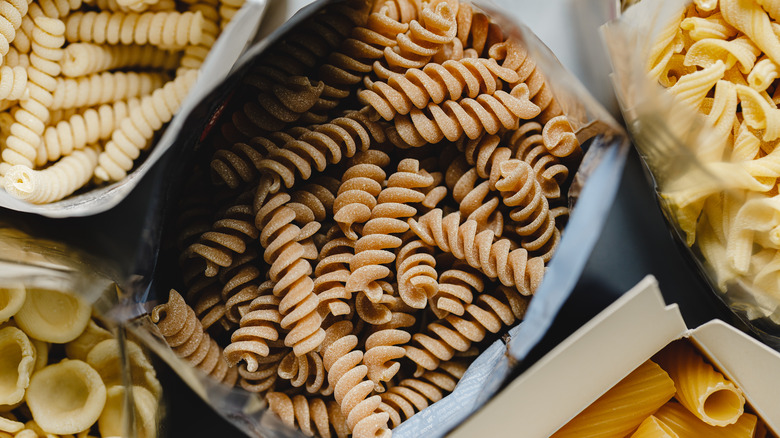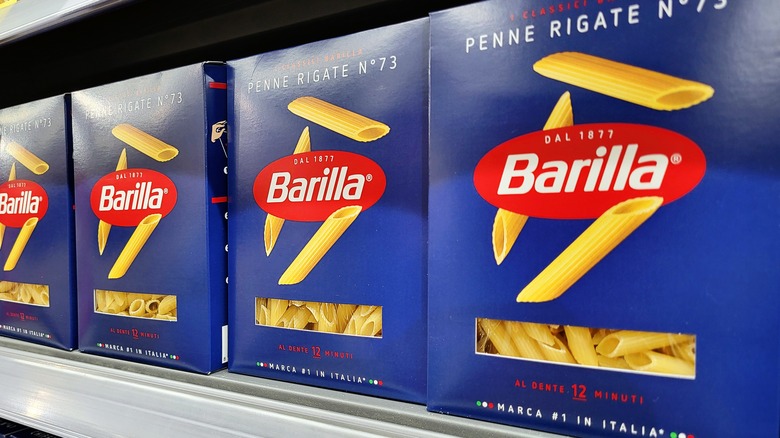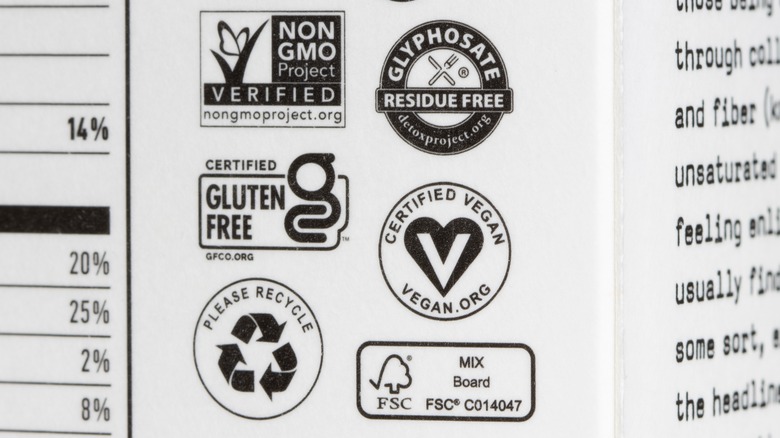Is Store-Bought Pasta Vegan?
For your average vegetarian, store-bought pasta topped with a meatless sauce and maybe some nutritional yeast makes for a go-to dinner in under 15 minutes. For a vegan, store-bought pasta isn't so straightforward. Depending on the brand, eggs sometimes show up in the pastas at the local grocery store. If your diet runs on the plant-based side of things, keeping a checklist of fail-safes in mind helps you to avoid buying pasta with eggs in it by mistake.
First, if you find the pasta in the refrigerated section of the store, check the label for red flags every time. Not all egg-containing store-bought pastas reside in the fridge section of the supermarket, but many of them do. There are enough of them to making doing an automatic label check a good practice when you shop for pasta in this section of the store.
Second, it isn't only the fresh version that has eggs. Some dried pastas do, too. This varies by brand. While it's more common to find ingredients like semolina flour, water, and little else in store-bought dried pastas, the fact that it's dried pasta doesn't mean it's eggless (or dairy-free, for that matter). Knowing the brands you're shopping for helps you to avoid buying pasta with unwanted ingredients in it.
Look for brands with vegan-friendly options
Many pasta brands have a reputation for embracing vegan living. However, even companies that boast a mostly eggless and dairy-free line-up may have a few products that aren't vegan-friendly. In these cases, it's helpful to keep a couple of things in mind: one, the name of brands that have wide variety of plant-based offerings, and two, the non-vegan exceptions within these mostly vegan-friendly brands. For example, Barilla pasta offers a wide array of vegan-friendly pastas. The company's oven-ready lasagne and its three-cheese tortellini are the non-vegan outliers for the brand. Whole Foods also carries a variety of vegan pastas. However, a number of its ravioli options, including its mushroom, butternut squash, and eggplant varieties, fall on the vegetarian-not-vegan side of things.
De Cecco is another brand that boasts many vegan pastas. The "exception" pastas in this line are its Egg Pappardelle No. 101 and its egg fettuccine, but fortunately these products have "egg" on the label. It's more difficult to overlook those when you're perusing the aisles. Additionally, Colvita pasta is made from only durum wheat and spring water. Knowing this allows vegan consumers to shop for ingredients for their favorite pasta and all-purpose tomato sauce combo without worrying about the no-nos.
Finally, there are a number of pastas made with bean flours. Pastas made from soy bean, edamame, black beans, chickpeas, yellow peas,and red lentils offer vegan shoppers egg- and dairy-free alternatives. These pasta have only one ingredient: the beans they're made from.
Check for vegan certification logos
One fail-safe method for ferreting out vegan pastas in the grocery stores is displayed prominently on eggless and dairy-free pastas: the certified vegan logo. The "V" wrapped in a heart gives this egg- and dairy-free guarantee away in the store. Care of Vegan.org, this stamp has graced over 15,000 products for the past 24 years, making it well-known in plant-based circles.
However, for all its advantages, it does have some drawbacks that vegans should know about before they head to the supermarket. First, food manufacturers who want the logo on their products must apply for certification. This means that not all pastas, even vegan ones, have been certified. Only companies that have applied for and been granted certification sport the logo. Therefore, just because a pasta doesn't have the logo doesn't mean it's not vegan.
Second, companies who share facilities and machinery with manufacturers who work with animal products can still qualify for certification and get it. Even though those companies must certify that the equipment has been thoroughly cleaned and must print this affiliation on the label, there's no guarantee that traces of animal products aren't in those pastas. Finally, as of this writing, only about 91 pasta-related products have been certified as vegan. However, some of those products aren't pastas but rather pasta sauces or soups. In light of this, it's probably safe to say that a majority of pasta types on the market don't bear the logo but are still vegan, nonetheless.


